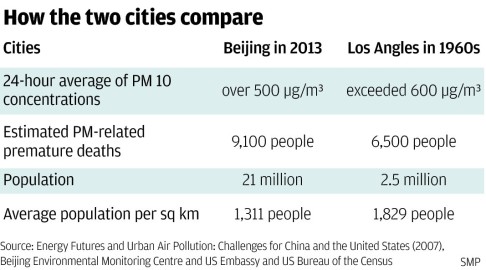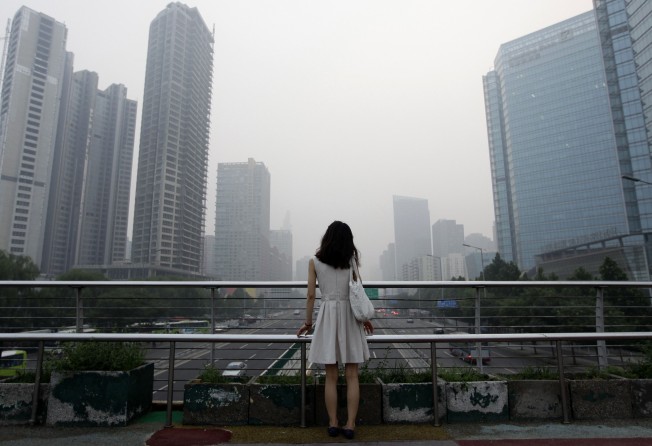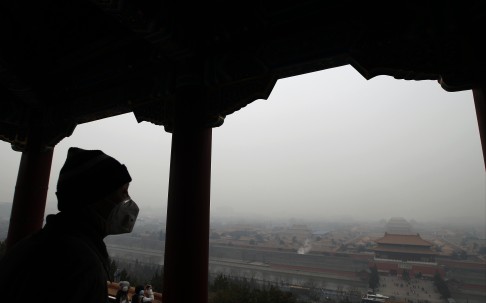
China's ability to tackle air pollution doubtful, says veteran US policymaker
US policymaker casts doubt on capital's ability to reclaim its blue skies, citing lack of detailed emissions data and targeted approaches

A veteran US policymaker responsible for cleaning up the smoggy skies of Los Angeles decades ago has voiced concern over Beijing's ability to tackle its notorious air pollution.
James Lents, former executive officer of California's South Coast Air Quality Management District, said Beijing and other Chinese cities might not have sufficient people who adequately understood the pollution problem, and that they needed to come up with better long-term plans.
In an interview with the Post on the sidelines of a Sino-US forum on air pollution, Lents said comprehensive pollution data and targeted approaches had been vital in removing smog in the Californian city.
"It took us almost 40 years to clean up," said Lents, who oversaw policies to clean up Los Angeles' skies, adding that they made mistakes and learned lessons in the process.
Beijing and Los Angeles were comparable, the policymaker said, as both cities had a dense population, heavy traffic and similar geology, with surrounding mountain ranges that could trap air pollutants.
But with better technologies available now, it could take Beijing a much shorter time to reclaim its blue skies, he said.
Official statistics show that average levels of PM2.5 - airborne particulates small enough to deeply penetrate the lungs - fell 16 per cent in 189 Chinese cities that monitored the pollutants both last year and this year.
In Beijing, PM2.5 levels fell 15.5 per cent in the first six months of the year from the same period last year, even though they still averaged 77.8 micrograms per cubic metre. The World Health Organisation's recommended maximum annual average is 10.
But while Beijing and many other major mainland cities had targets for reducing pollution, Lents said they were often not comprehensive enough.
"[Los Angeles] developed a plan, we understood what the emissions were, what caused them and what would be the best ways to reduce them. I don't often see a plan like that for the [mainland] cities," Lents said.
"They do have five-year plans where cities say 'we'll reduce this by a certain percentage, we'll close factories or limit car use' - which are good. But they don't put all these things together."

In 2013, the State Council released a 10-point guideline for cities to rein in air pollution. The list included measures such as energy restructuring, and set targets to reduce smog by as much as 25 per cent in five years.
Beijing's own plan includes relocating polluting factories, phasing out the burning of coal in downtown areas, limiting car use and even banning barbecues.
Lents said Los Angeles's efforts to limit car use - by encouraging carpooling - never worked out as it was "politically unacceptable". So the city adopted a "technology intrusive" approach - for instance, by making people switch to less-polluting materials in starting a barbecue - over a "culturally intensive" one that forced people to change their ways of life, he said.
It also had a strong team of some 700 environmental staff members to strictly enforce rules, he said.
"I don't think Beijing has a team as big, which may explain why compliance by factories and the public is not as good," Lents said.